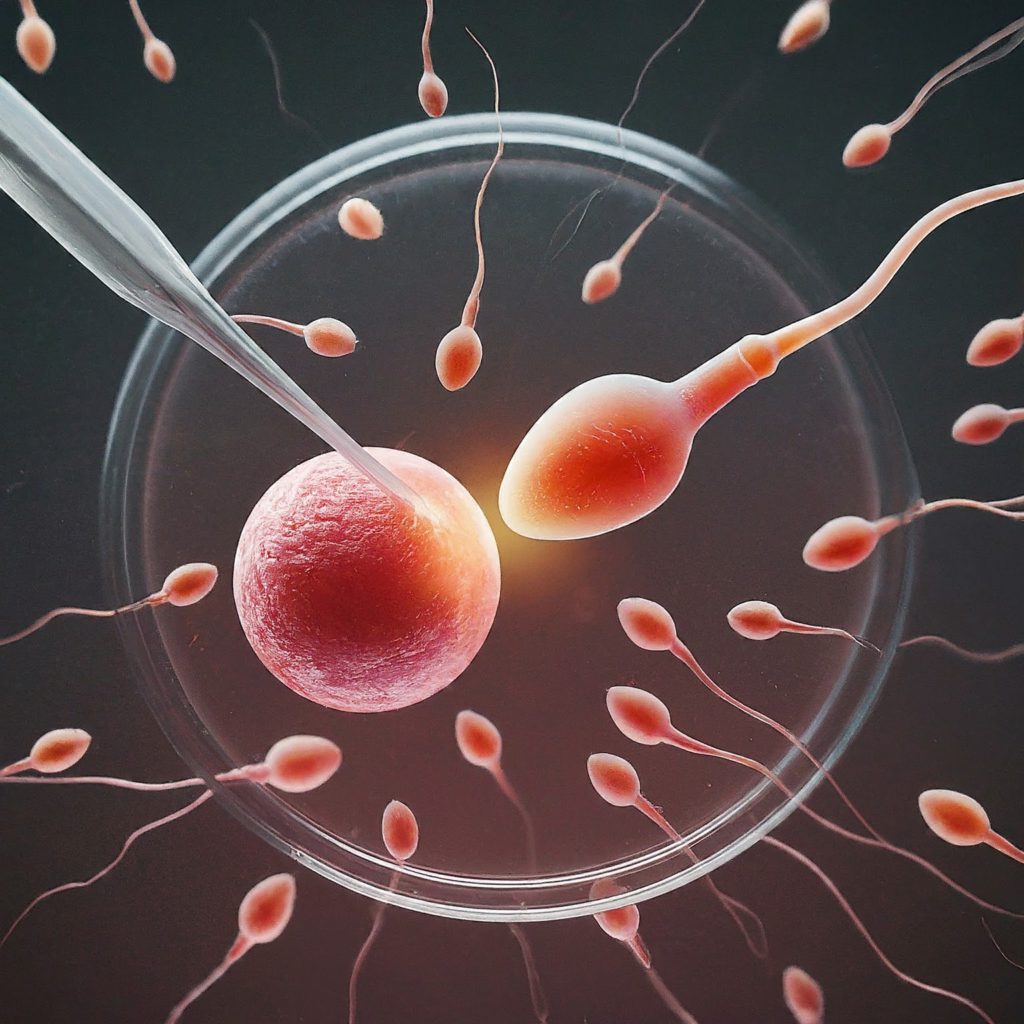In vitro fertilization (IVF) using donor eggs offers a beacon of hope for many individuals and couples dreaming of parenthood but facing infertility challenges. This comprehensive guide elucidates the step-by-step process of conceiving a baby through donor egg IVF, providing valuable insights and tips to navigate this complex journey successfully.

1. Understanding Donor Egg IVF
Donor egg IVF is a fertility treatment where eggs from a donor are fertilized with sperm in a laboratory setting, and the resulting embryos are transferred to the recipient’s uterus. This option is particularly beneficial for those with ovarian failure, diminished ovarian reserve, or genetic concerns.
2. Choosing the Right Fertility Clinic
The selection of a reputable fertility clinic is paramount. Look for clinics with high success rates in donor egg IVF, experienced reproductive endocrinologists, and comprehensive support services. Researching and visiting potential clinics can help you make an informed decision.
3. Selecting an Egg Donor
Choosing an egg donor is a critical step. Donors can be known (a friend or family member) or anonymous (selected through an agency or fertility clinic). Consider factors like physical characteristics, medical history, educational background, and psychological health in your decision-making process.
4. Legal Considerations
Before proceeding, it’s essential to address legal aspects, including donor agreements. These documents should clarify parental rights, confidentiality, and any financial arrangements. Consulting with a legal expert specializing in reproductive law is advisable.
5. Medical Screening
Both the egg donor and the recipient undergo thorough medical screening. For the donor, this includes genetic testing, infectious disease screening, and ovarian reserve testing. Recipients are evaluated to ensure their uterus can support a pregnancy, which may involve blood tests, ultrasounds, and uterine cavity assessments.
6. Synchronization and Stimulation
The donor’s and recipient’s menstrual cycles are synchronized using birth control pills. Subsequently, the donor undergoes ovarian stimulation to encourage the production of multiple eggs. Regular monitoring through blood tests and ultrasounds is conducted to track progress.
7. Egg Retrieval and Fertilization
Once the eggs are mature, they are retrieved from the donor under sedation. The eggs are then fertilized with the partner’s or donor’s sperm in the laboratory. Fertilization methods include conventional insemination or intracytoplasmic sperm injection (ICSI).
8. Embryo Transfer
The best quality embryos are selected for transfer to the recipient’s uterus. This process is typically done 3-5 days after fertilization. The number of embryos transferred depends on various factors, including the recipient’s age and embryo quality.
9. The Two-Week Wait
After the embryo transfer, recipients enter the two-week wait period before taking a pregnancy test. This can be an emotionally challenging time, filled with hope and anxiety.
10. Pregnancy Test
Approximately two weeks post-transfer, a blood test is conducted to detect the presence of human chorionic gonadotropin (hCG), indicating pregnancy. If successful, prenatal care begins. If not, the next steps are discussed with your fertility specialist.
FAQs About Donor Egg IVF
Q1: Who might consider donor egg IVF?
A1: Donor egg IVF is considered by a variety of individuals and couples, including those experiencing premature ovarian failure, diminished ovarian reserve, genetic disorders that could be passed to offspring, previous unsuccessful IVF cycles, or menopause. It is also a viable option for same-sex male couples and single males wishing to become parents.
Q2: How successful is donor egg IVF?
A2: The success rates of donor egg IVF are generally higher than those of conventional IVF, especially for women over the age of 40. According to several studies, the average success rate—defined as the percentage of transfers that result in live births—can be over 50%. However, success rates can vary significantly based on the clinic, recipient’s health, and specific circumstances.
Q3: How do I choose an egg donor?
A3: Egg donors can be anonymous or known to the recipient. When choosing a donor, factors to consider include physical characteristics (which may or may not be important to you), health and medical history, educational background, psychological well-being, and any legal or financial aspects involved. Many people also consider the donor’s reasons for donating and whether their personality or values resonate with them.
Q4: What is the process of donor egg IVF?
A4: The donor egg IVF process involves several steps, including selecting a donor, legal arrangements, medical screenings for both donor and recipient, synchronization of menstrual cycles, ovarian stimulation for the donor, egg retrieval, fertilization of the eggs in the lab, and finally, embryo transfer to the recipient’s uterus.
Q5: Is the baby genetically related to me if I use a donor egg?
A5: The baby will not be genetically related to the recipient mother if donor eggs are used. However, if the recipient’s partner’s sperm is used, the baby will be genetically related to the father. For many, the genetic connection is less important than the emotional and physical experience of pregnancy and childbirth.
Q6: What are the risks associated with donor egg IVF?
A6: The risks associated with donor egg IVF are similar to those of traditional IVF and include the risk of ovarian hyperstimulation syndrome (OHSS) in donors, the emotional and physical impact of the treatments on the recipient, and the standard risks of pregnancy. Additionally, there’s a slightly increased risk of complications in pregnancies achieved through IVF, such as preterm birth and low birth weight.
Q7: How much does donor egg IVF cost?
A7: The cost of donor egg IVF can be significant and varies widely depending on the clinic, the location, the compensation for the donor, and additional expenses such as legal fees, medications, and screening tests. It’s not uncommon for a single cycle to cost between $20,000 and $30,000 or more. Some insurance plans may cover a portion of the costs, but coverage varies greatly.
Q8: Can I meet my egg donor?
A8: Whether you can meet your egg donor depends on the type of donation (anonymous or known) and the preferences of all parties involved. In the case of known donations, meeting and maintaining contact with the donor is certainly possible. With anonymous donations, clinics typically keep the identities of both parties confidential, although some donors and recipients opt for semi-open donations where limited information is exchanged.
Q9: How do I prepare for the donor egg IVF process?
A9: Preparation for donor egg IVF involves both physical and emotional aspects. Physically, recipients may need to undergo hormone treatments to prepare their uterine lining for implantation. Emotionally, counseling or support groups can be beneficial for navigating the complex feelings that can arise. Financial planning is also crucial given the significant costs involved.
Q10: What support is available for those undergoing donor egg IVF?
A10: Many fertility clinics offer counseling services, and there are numerous online and in-person support groups for individuals and couples undergoing donor egg IVF. These resources can provide emotional support, practical advice, and a sense of community throughout the process.

